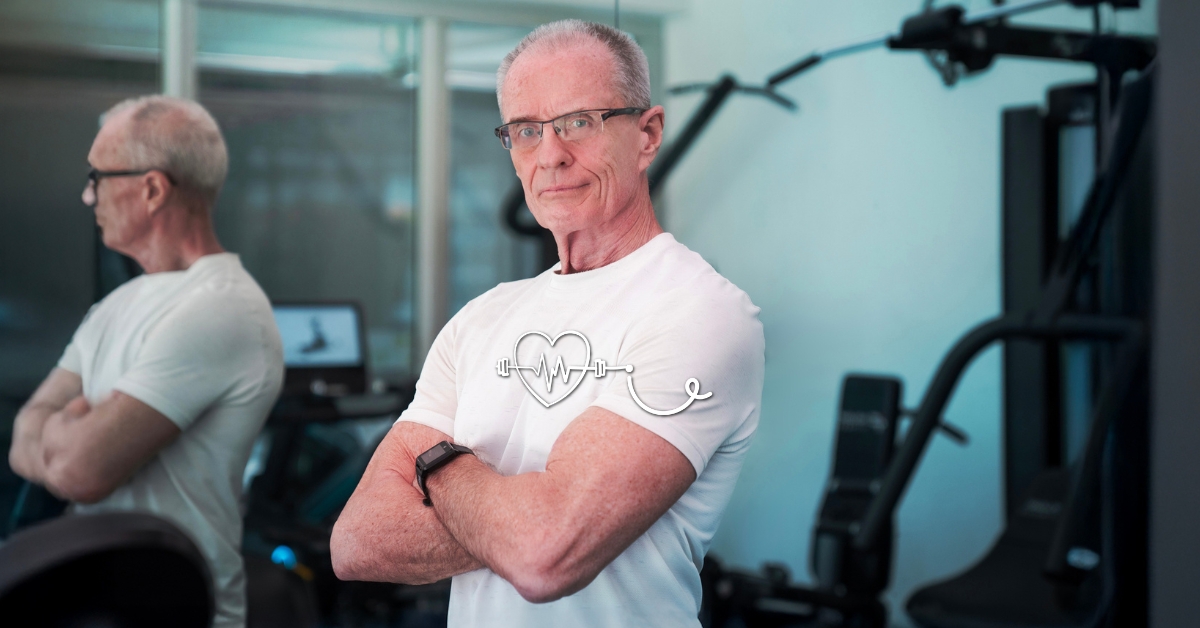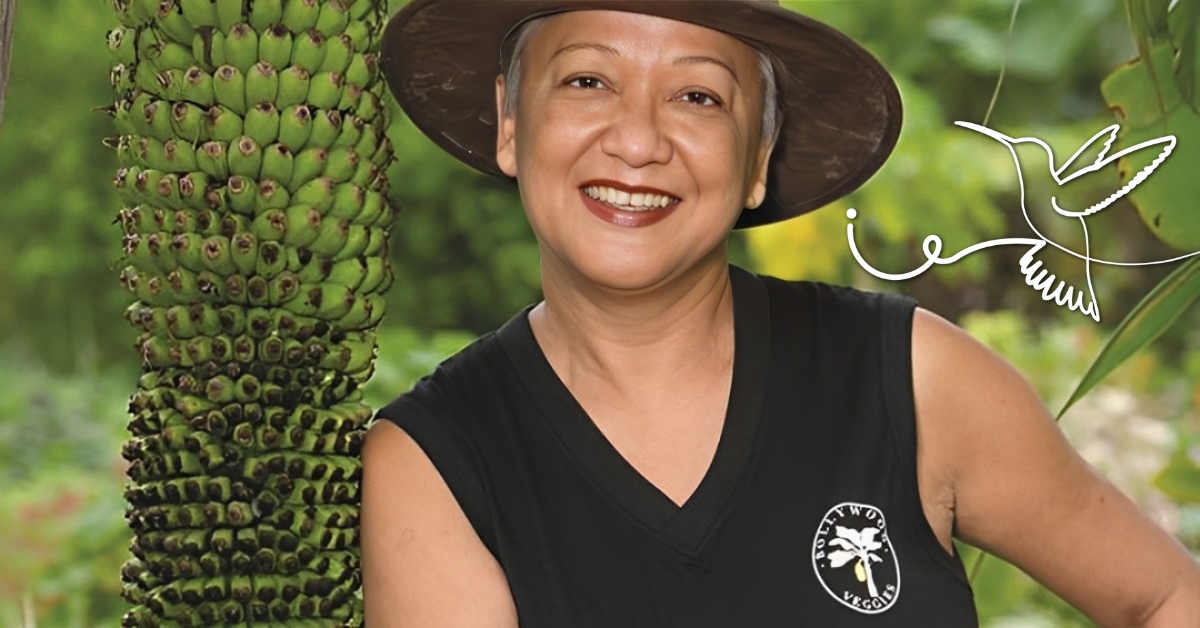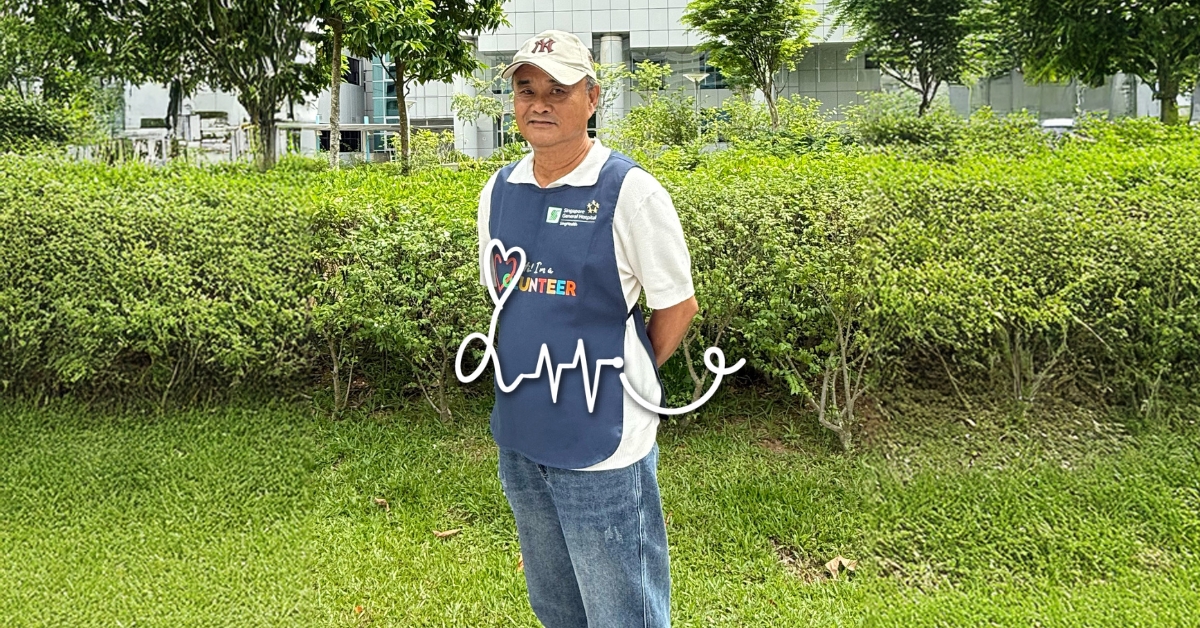
By Vikneswary d/o A Jahnasegar.
The cheerful Johnny Leow is a familiar sight around Singapore General Hospital (SGH). You’ll recognise the 63-year-old for his blue vest and a warm smile, which rarely leaves his face even after hours assisting fellow seniors as a volunteer medical chaperone.
His duties are straightforward, but not necessarily easy. He escorts in-need seniors – typically those with mobility constraints and no live-in caregiver – around Singapore’s largest hospital, accompanying and guiding them for the duration of their visit.
It’s a calling that demands around “20 to 30 hours” a month from Johnny, though these are hours that he’s more than happy to give now that he’s retired from his day job as a navy serviceman.
During our visit, he’s busy chaperoning 77-year-old Madam Ang, due for a routine blood test that day at the hospital’s Diabetes and Metabolism Centre. Johnny stays at her side every step of the way, leading her from drop-off point, to registration counter, then her various appointments, the pharmacy to collect her medicine, and out the door.
Though he’s essentially just a helpful pair of eyes and arms – the older woman needs the help of a cane to get around – his presence turned a potentially stressful hospital visit into a breezy one.
Advertisement
Long wait time for medical chaperones and escorts
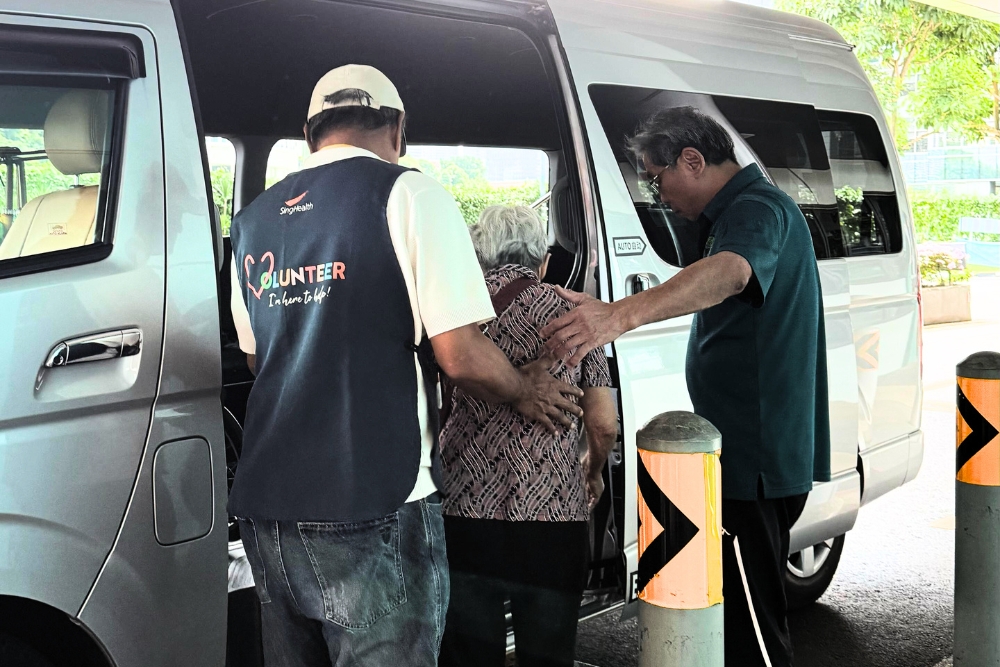
By volunteering their time and effort, medical chaperones like Johnny are helping address a crucial gap in healthcare for the less able-bodied.
They’re turning missed appointments and defaulted routine checkups into hospital visits, which allow doctors to discover and treat ailments before they progress into something more serious.
Missing appointments is a major concern in healthcare, especially when it comes to patients with chronic illnesses. A 2010 study published in the American Economic Review found that patients with chronic illnesses who cut down on necessary visits to the doctor and avoid taking medications often see a significant increase in hospitalisations.
In Singapore, about 12 to 20% of people aged 65 and older fail to show up for treatment at specialist clinics after polyclinic referrals, despite alerts and reminders.
While there are a variety of reasons leading to skipped hospital visits – including fear of costs, fear of the unknown and sometimes, simple forgetfulness – there are also seniors who stay at home because they find it too troublesome or difficult to head to the hospital.
To combat this, social service organisations in Singapore provide medical escort and transportation services for patients, though these too, are plagued with resource constraints, leading to waiting times of up to three months.
For SGH’s medical chaperone programme specifically, the hospital collaborates with Thye Hua Kwan Moral Charity’s Medical Escort and Transport Services to provide the most efficient help for its beneficiaries.
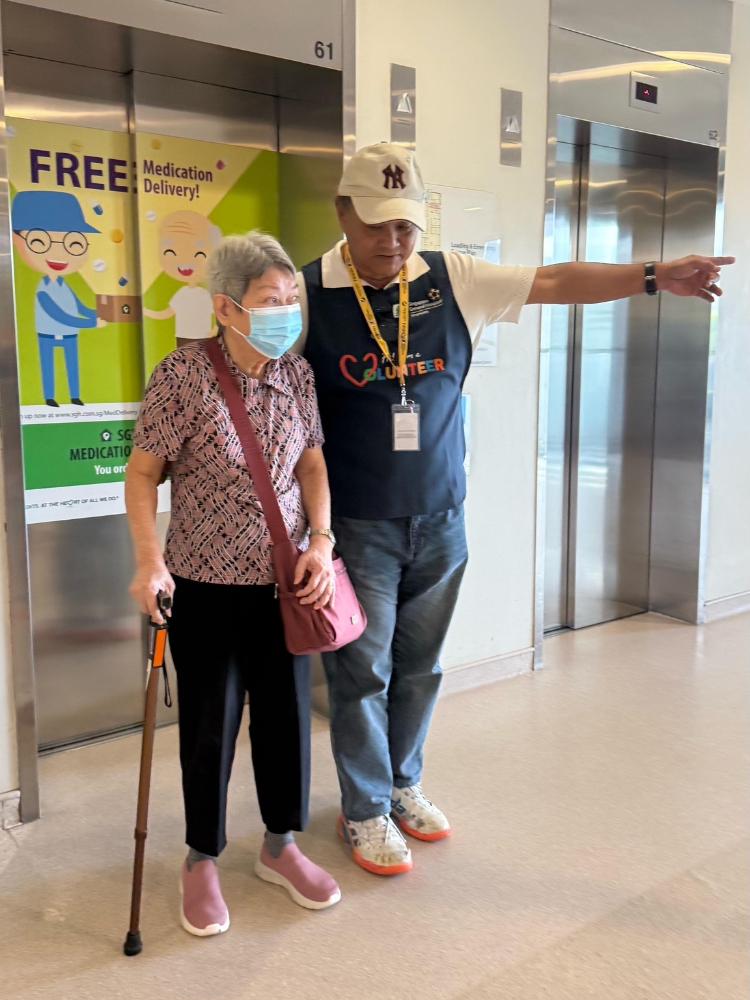
Credit: Vikneswary d/o A Jahnasegar
By sharing the load between a dedicated transport operator and volunteer medical chaperones, the organisations are able to assist more people like Madam Ang, who lives alone with no stay-in help.
The soft-spoken woman says that getting to the hospital and walking around for appointments would be too difficult on her own – she even lost her way once, and was hesitant to approach strangers to ask for assistance.
Dedicated volunteers
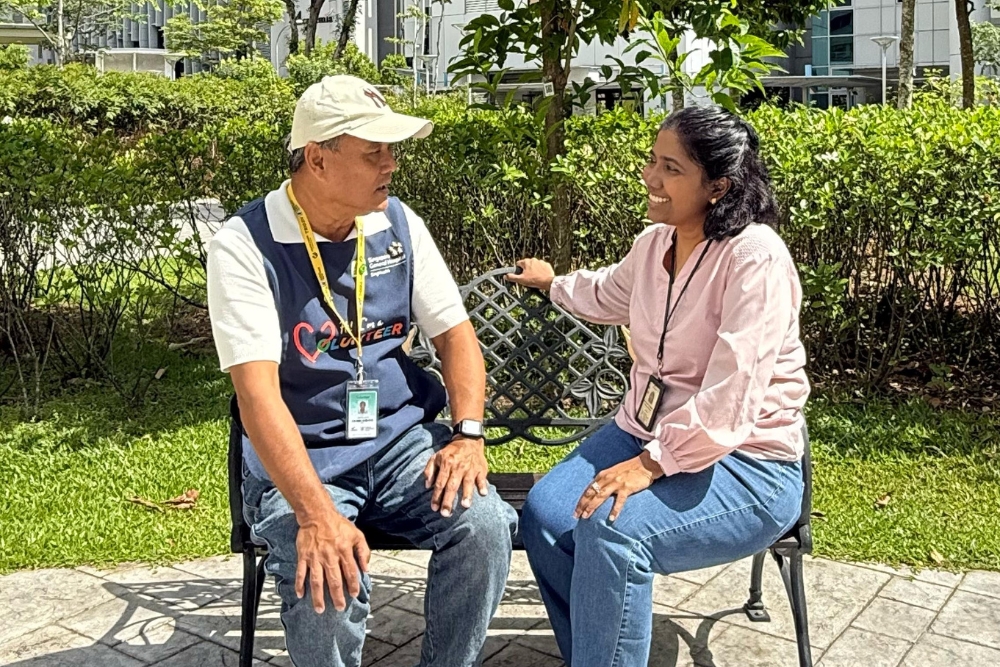
Johnny, a consistent volunteer with SGH since March 2023, is now considered one of its star medical chaperones.
His first foray into volunteering came in 2022, about four years after he retired, when he helped out at a mask distribution event with Temasek Foundation after hearing about it on the radio. He moved on to volunteering with hospitals the following year, figuring that “this was where more care is needed.”
Volunteering was his way of giving back to society, though the silver quickly found it has its own rewards too.
For one, it reminded him of “the importance of looking after my own health too”. But more importantly, the avid runner says it helps keep him socially active, especially when patients become friends.
As a medical chaperone, I get to spend close to two hours with just one beneficiary, allowing for more impactful moments. So, I end up getting to know them better,
he says, recounting a time when a repeat beneficiary remembered him by name.
According to Mumtaj Ibrahim, Senior Manager of Volunteer Management at SGH, around 20% of the hospital’s 500 active volunteers are aged 60 and above.
She urges more able-bodied seniors like Johnny to volunteer, especially in light of Singapore’s growing eldercare needs.
With more volunteers joining the programme, and more community partners signing up for medical chaperone services, we will be able to expand our services to reach a wider pool of beneficiaries.
She says,
Volunteer with a good heart, without expecting anything in return, and you will never be disappointed!
Johnny offers,

